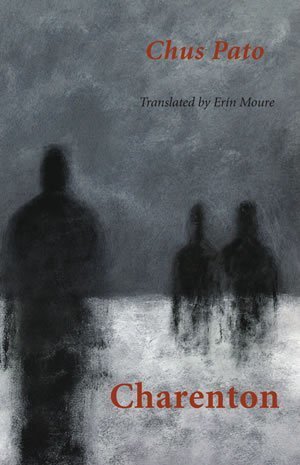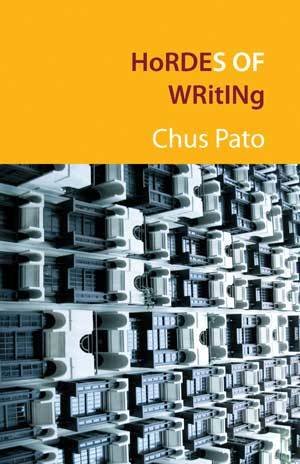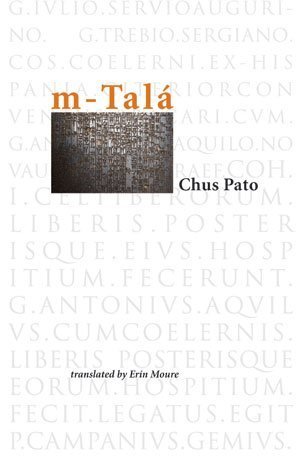Shearsman Store
Pato, Chus
Chus Pato (María Xesús Pato Díaz) was born in 1955 in Ourense, Galicia (north-west Spain). All of her work is written in Galician, a language which is closely related to both Spanish and Portuguese.
She teaches History and Geography at a high school in the interior of Galicia. In her words: "writing metabolizes the world, even that world that cannot be absorbed into writing." And: "I have a predilection for those constructions which investigate the possibility of a language-thinking that refuses to repeat the already-written and lives in contact-lamination with the seams of the unsayable, of what hasn't yet been written into the corporeality of the poem." "To me, the poem is a freedom-machine." "My autobiography? It does not always seem to be mine; sometimes I would rather have other lives. Insofar as all autobiography participates in fiction, I prefer not to be forced to choose, so I opt not to have one."
Her work: Urania (Calpurnia, Ourense, 1991), Heloísa (Espiral Maior, A Coruña, 1994), Fascinio (Toxosoutos, Santiago de Compostela, 1995), Nínive , (Xerais, Vigo, 1996), A ponte das poldras (Noitarenga, Santiago de Compostela, 1996), m-Talá , (Xerais, Vigo, 2000), Charenton (Xerais, Vigo, 2003), and a selection translated into Spanish by Irís Cochón: Un Ganges de palabras (Puerta del Mar, Málaga, 2003).
Politically engaged, Chus Pato is a member of Redes escarlata , a leftist cultural group that supports independence, as well as PEN Galicia.
"In Galicia, the poetic renewal of the last quarter-century can be given a name, title, date: Xosé Luís Méndez Ferrín, Con Pólvora e Magnolias , 1976. Now, to mark the terrain and do justice to a new poetics that, as I've said, is a "lesson on the abyss," we can once again affix a name, title and date: Chus Pato, m-Talá , 2000. "The poetics of chaos is an inalienable characteristic of the work of Chus Pato (Ourense, 1955). But in m-Talá she wipes out the borders of literary conventions. The multiple discourses and languages around us erupt into, and construct, the poem. Reading this book is a challenge and play from which humour is never far. The poet, who has always shunned metaphor and lyric escapism, puts the world on poetic display and pulls it apart in its complexity. Here we find postmodern dramatic poetry (her in-dispensable rewritings of Shakespeare and of innumerable fictional characters who have shaped the lyric voice), a feminist and national consciousness, critical rereadings with a lucid gaze (the poet never loses sight of the discourses that both feed and lull our consciousness), dialogues with references as robust and close as Méndez Ferrín, Torres, Celan, Mandelstam or Akhmatova. In the wake of m-Talá, which seals Pato's work of the 1990s, the residual 19th century epic is no longer viable. There are no unique subjects, there are neither heroes nor heroines, nor the possibility of utopic stories or pure entities. And at this very moment of certainty regarding what can't exist, here comes the construction of poems that are politically explicit and incorrect, fertilised in the tangle of discourses that surround us. From this moment on, m-Talá is a model for all Galician poetry." Helena González Fernández in Galerna (New York), 2003. (Translated from Spanish by Erín Moure ).





